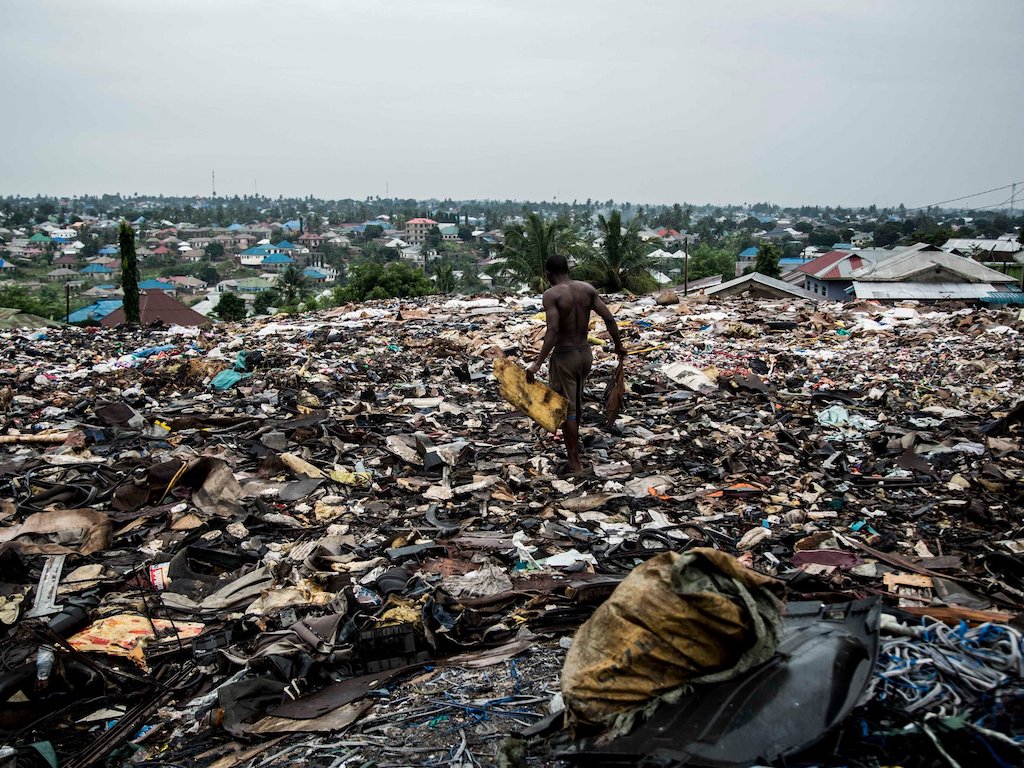4 Mins Read
By: Hope Mafaranga
As Uganda develops its e-waste policy, neighboring Rwanda establishes a broad-based plan involving incentives and high-tech facilities.
As many countries in Africa embrace the latest technology—smartphones, computers, and other electronic gadgets—few have developed national strategies for managing the resulting e-waste. E-waste may include electrical and electronic assemblies, scrap, and batteries. Some contains hazardous materials such as cadmium, mercury, lead, and polychlorinated biphenyl.
Uganda is one of several nations working to establish a coherent e-waste policy and looking to neighboring Rwanda for lessons in how to develop and implement it.
What Is E-Waste?
E-waste describes everything from the electronic components of large household appliances (such as refrigerators and air conditioners) to personal products such as cell phones, personal stereos, and computers.
Callist Tindimugaya, a hydrologist and commissioner for water resources planning and regulation in Uganda’s Ministry of Water and Environment, agreed. “Many people use mobile phones and computers. Such gadgets are being changed without the proper disposal of the old ones.”
In Uganda, this e-waste ends up in landfills. “We do not have a [specific] landfill for e-waste and do not know how to manage it. Old electronic equipment contains toxic materials, and some of them are persistent organic pollutants,” said Naomi Namara Karekaho, a development communicator and educator with Uganda’s National Environment Management Authority.
Elioda Tumwesigye, minister for the Ugandan Ministry of Science, Technology and Innovation, said the e-waste problem has turned into a crisis, and he is helping Uganda to develop a management policy to address the issue.
“We understand the health hazards e-waste poses for Ugandans, and that is why we have been advocating for policies to manage our e-waste,” he said.
Rwanda Moves Ahead in East Africa in E-Waste Management
As Uganda grapples with e-waste, neighboring Rwanda has already invested in addressing the problem.
Rwanda’s National e-Waste Management Policy provides for enactment of specific legislation for management and disposal of e-waste to safeguard human life and the environment. In developing the policy, Rwandan officials considered international conventions such as the Basel Convention on the Control of Transboundary Movements of Hazardous Wastes and Their Disposal, the Stockholm Convention on Persistent Organic Pollutants, the World Charter for Nature, the Vienna Convention for the Protection of the Ozone Layer, and the Millennium Development Goals.
Olivier Mbera, country general manager of EnviroServe Rwanda, explained how Rwanda approached the creation of its e-waste policy. First, the country conducted an initial inventory to assess the e-waste situation and develop a legal framework for what was needed to address it. The framework is still relied on, even though the recycling plant is now operational.
The framework includes offering financial incentives to individuals who collect e-waste from the community and bring it to the plant for recycling. The incentives are based on weight, with community members offered US$100 for 13–15 kilograms of e-waste collected. Mbera says such incentives motivate people to use the plant and embrace the importance of having a clean environment. Rwanda’s e-waste policy also fosters “sustainable recycling industries on a national, regional, and international level,” Mbera said.
On the basis of the newly created policy, Rwanda’s Green Fund invested close to $1.5 million to establish an environmentally friendly e-waste collection center and dismantling facility. The facility, constructed in Rwanda’s Bugesera District, is capable of recycling 15,000 metric tons of e-waste every year.
“The recycling facility is now operational and yielding positive socioeconomic impacts for the country. Three hundred people are already employed in green jobs, and students have been given internships at the facility,” Mbera said.
In addition to the recycling plant, Rwanda has also established a series of collection centers in each district across the country. Mbera said these centers have created more than 1,000 jobs.
Vincent Biruta, a physician and Rwanda’s minister of foreign affairs, emphasizes that Rwanda’s effective e-waste policies also benefit local economies. “Adequate e-waste management allows the recovery of precious metals such as gold, silver, platinum, palladium, copper, and tin from disposed-of components and also creates new business and job creation opportunities in the e-waste collection and management value chain, while reducing the environmental burden to landfills.”

This story originally appeared in AGU’s Eos Magazine and is republished here as part of Covering Climate Now, a global journalistic collaboration to strengthen coverage of the climate story.
Lead image courtesy of Jacques Nkinzingabo for The New York Times.



